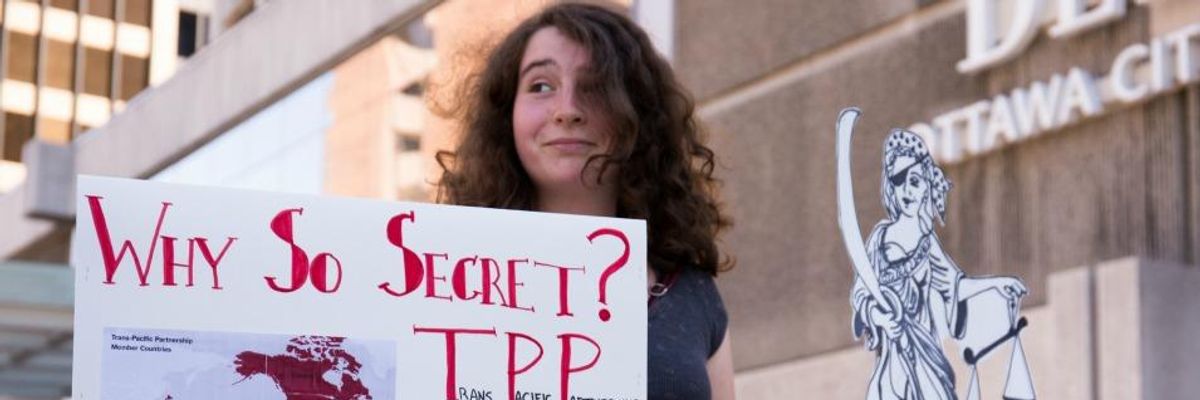Provisions that could appear in secretly negotiated trade deal would boost corporate power while making it harder to prevent another financial crisis, Sen. Elizabeth Warren has stated.
The deal in question is the 12-nation Trans-Pacific Partnership (TPP), still under negotiations, which President Obama has called a "high priority."
Warren (D-Mass.), joined by Senators Tammy Baldwin (D-Wis.) and Edward J. Markey (D-Mass.), outlined their concerns in a letter (pdf) dated Wednesday to United States Trade Representative (USTR) Michael Froman.
"We are concerned that the Trans-Pacific Partnership (TPP) could make it harder for Congress and regulatory agencies to prevent future financial crises," the senators write.
They focus on three areas of concern: investor-state dispute settlement process, market access rules and capital controls.
As watchdog group Public Citizen has summed up, with the investor-state dispute settlement process, "foreign investors can skirt domestic courts and laws, and sue governments directly before tribunals of three private sector lawyers operating under World Bank and UN rules to demand taxpayer compensation for any domestic law that investors believe will diminish their 'expected future profits.'"
Such a system could also allow foreign companies to challenge U.S. financial regulations "on the basis that they frustrated a foreign company's expectations," the letter states.
"Including such provisions in the TPP could expose American taxpayers to billions of dollars in losses and dissuade the government from establishing or enforcing financial rules that impact foreign banks. The consequence would be to strip our regulators of the tools they need to prevent the next crisis," the senators write.
They also write that "market access" provisions could prohibit restrictions on "predatory or toxic financial products," thereby exposing conusmers to financial risk.
Additionally, the senators warn against a provision that would restrict the government from using capital controls, which they say the IMF and economists have recognized as "legitimate policy tools for preventing and mitigating financial crises."
The senators asked for a response as well as the related negotiating text by January 6.
Matthew McAlvanah, a spokesperson for Froman's office, defended the trade deal, saying in a statement to the Washington Post: "TPP will in no way limit the ability of governments to put in place strong consumer protections or to regulate financial markets, including derivatives."
The TPP was the topic of Bill Moyers' show last week, during which he and veteran journalist John R. "Rick" MacArthur discussed how corporations have reaped benefits from trade deals in the past, and how Democrats have fostered the passage of such deals.
Moyers went on to describe Froman as "a disciple of Robert Rubin, who's the Wall Street insider who pushed for free trade and deregulation when he was Bill Clinton's Secretary of the Treasury and then went back to Wall Street and cashed in big from deregulation."

